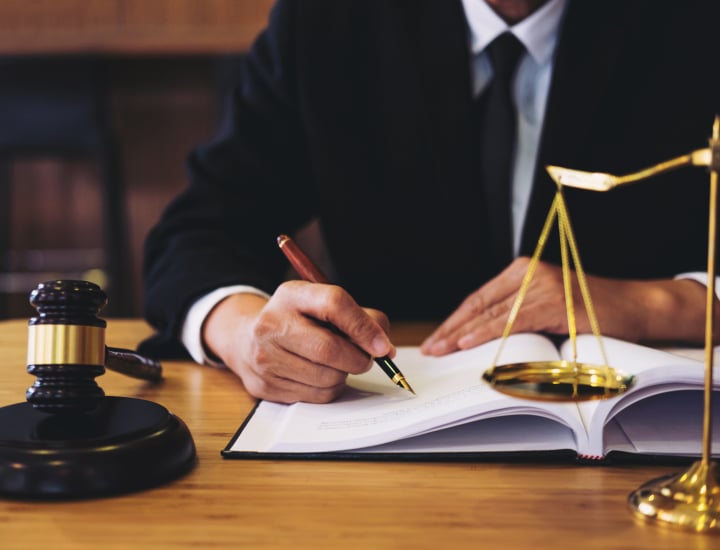Sex Crimes in Arizona
Sex crimes represent some of the most complex, sensitive, and gravely consequential issues within our legal system. These offenses, spanning a wide spectrum from sexual harassment to rape, have profound effects on victims, alleged offenders, families, and communities. For those accused, the associated stigma, societal judgment, and potential legal repercussions often result in immediate and long-lasting impacts. Thus, handling these cases requires a deep understanding of the intricate laws surrounding sex crimes, the application of sharp legal strategies, and an empathetic, respectful approach towards all parties involved. Navigating these complexities necessitates the experience and skill of dedicated legal professionals.
At Tamou Law Group, we understand the social stigma, personal impact, and severe legal consequences that accompany charges related to sex offenses. As part of our commitment to your defense, we offer legal services spanning all levels of sex offenses, ranging from Class 2 to Class 6 felonies. We are steadfast in our dedication to protecting your rights, reputation, and future.
Sex Crime Statutes
Class 2 Felonies:
- Sexual Conduct with a Minor (A.R.S. § 13-1405): In Arizona, any person who intentionally or knowingly engages in sexual intercourse or oral sexual contact with any person who is under 15 years of age is guilty of a Class 2 felony. The nature of the felony changes depending on the age of the victim and the nature of the sexual conduct.
Class 3 Felonies:
- Sexual Assault (A.R.S. § 13-1406): Arizona law defines sexual assault as intentionally or knowingly engaging in sexual intercourse or oral sexual contact with any person without consent of such person. It’s classified as a Class 3 felony and carries significant penalties, which may include imprisonment, fines, and mandatory sex offender registration.
- Sexual Conduct with a Minor (A.R.S. § 13-1405): If the minor involved in sexual conduct is 15, 16, or 17 years old, it’s generally considered a Class 3 felony. However, there are exceptions to this based on the defendant’s age, the nature of the relationship, and other factors.
Class 4 Felonies:
- Sexual Abuse (A.R.S. § 13-1404): This includes intentionally or knowingly engaging in sexual contact (excluding sexual intercourse or oral sexual contact) with any person aged 15 years or older without consent of that person.
- Child Prostitution (A.R.S. § 13-3212): It is considered a Class 4 felony to knowingly cause any minor under the age of 18, or whom the person believes to be under 18, to engage in prostitution. It also applies to individuals who solicit or engage in child prostitution with a minor aged 15, 16, or 17.
Class 5 Felonies:
- Public Sexual Indecency (A.R.S. § 13-1403): A person is guilty of public sexual indecency by intentionally or knowingly engaging in any of the following acts, if another person is present, and the defendant is reckless about whether the other person, as a reasonable person, would be offended or alarmed by the act: an act of sexual contact, an act of oral sexual contact, or an act of sexual intercourse.
- Indecent Exposure (A.R.S. § 13-1402): This includes exposing one’s genitals or anus, or a female exposing her breasts, to another person under circumstances in which the person so exposed would be likely to cause affront or alarm. If the person exposed is under the age of 15, it’s a Class 5 felony.
Class 6 Felonies:
- Indecent Exposure (A.R.S. § 13-1402): If the person exposed to indecent exposure is 15 years of age or older, the crime is generally a Class 6 felony.
- Unlawful Age Misrepresentation (A.R.S. § 13-3554): It’s a Class 6 felony for a person to misrepresent their age with the intent of engaging or soliciting a minor in sexual conduct over the internet.
Sentencing Guidelines for Sex Crimes in Arizona (Generally)
Remember, an accusation is not a conviction. If you or a loved one is facing charges related to sex offenses, contact Tamou Law Group immediately. Let our deep knowledge of Arizona’s criminal law serve as your beacon during this challenging time. Our initial consultation is free and confidential. We are ready to listen, advise, and most importantly, fight for you.
Click on the list to find out more about Sentencing Guidelines in General.
Class 2 Felonies – Sexual Conduct with a Minor
- Under Arizona law, engaging in sexual conduct with a minor under the age of 15 is classified as a Class 2 felony. A conviction can lead to minimum sentencing of 13 years of imprisonment, with a maximum of 27 years.
Class 3 Felonies – Sexual Assault
- Class 3 felonies usually include cases of sexual assault, often synonymous with rape. If convicted, defendants face 5 to 14 years in prison
Class 4 Felonies – Sexual Abuse
- Sexual abuse, including situations where the defendant intentionally or knowingly engages in sexual contact with any person who is fifteen or more years of age without consent of that person or with any person who is under fifteen years of age if the sexual contact involves only the female breast, is considered a Class 4 felony. The sentencing for such crimes typically ranges from 1 to 3.75 years in prison.
Class 5 Felonies – Public Sexual Indecency
- Class 5 felonies often involve charges of public sexual indecency and indecent exposure. Penalties include prison terms of 6 months to 2.5 years, and potential inclusion in the sex offender registry.
Class 6 Felonies – Indecent Exposure
- In Arizona, indecent exposure is usually classified as a Class 6 felony. If convicted, penalties can range from a probation term with zero days in jail up to a year, or a prison term ranging from 4 months to 2 years.Each case involving sex offenses is unique, with circumstances that may significantly affect sentencing. At Tamou Law Group, we tailor our defense strategies to your specific situation to aim for the best possible outcome.Our team of experienced attorneys is adept at navigating the complexities of sex crime cases under Arizona law. We provide a compassionate yet relentless defense, focusing on minimizing both the short-term and long-term consequences of your charges.From the moment you retain our services, we act as your advocates – challenging the prosecution’s evidence, questioning their methods, and defending your rights at every turn.
Defending Sex Crimes in Arizona
Defending against sex crime charges requires a comprehensive understanding of the law, careful examination of the facts, and a strategic approach. There are several defense strategies that can potentially be employed, although the exact defense will depend on the specifics of the case. Here are some common defenses used in sex crimes cases:
- Consent: Consent is a common defense to many sex crimes, where the defendant argues that the alleged victim willingly participated in the sexual act. However, there are many circumstances, such as the alleged victim being under the age of consent, being intoxicated, or being mentally incapable of providing consent, where this defense may not be applicable.
- False Accusations: The reasons can vary from revenge, to regret, to attempts at gaining advantage in other legal proceedings (like divorce or child custody battles). A defense attorney can highlight inconsistencies in the accuser’s story, bring up motives to lie, or present other evidence that points to the accusation being false.
- Insufficient Evidence: The prosecution bears the burden of proof in criminal cases, meaning they must present enough evidence to prove beyond a reasonable doubt that the defendant committed the crime. If the evidence is weak, inconsistent, or incomplete, the defense can argue that the prosecution has not met this burden.
- Mistaken Identity: In some cases, the defendant may argue that they have been mistakenly identified as the perpetrator. This defense may involve presenting an alibi, challenging the reliability of eyewitness testimony, or pointing to flaws in procedures used to identify the defendant (like lineups or showups).
- Statute of Limitations: While many serious sex crimes have no statute of limitations, some lesser offenses do. If the prosecution has waited too long to bring charges, the defense can argue that the case should be dismissed.
- Constitutional Violations: If evidence was obtained through an illegal search or seizure, or if the defendant was not properly read their rights, the defense can move to have this evidence excluded.
Remember, every case is unique and the best defense strategy will depend on the facts and circumstances surrounding the charges. It’s crucial to consult with a skilled defense attorney who can review the specifics of your case and determine the most effective defense strategy.

How We Do It
- Conducting a comprehensive review and analysis of your case’s facts
- Contesting the evidence presented by the prosecution
- Identifying weaknesses in the State’s case
- Exploring potential defenses, such as lack of intent, mistaken identity, or consent to enter the property
- Negotiating with the State for reduced charges or alternative sentencing options

Contact Us Today
Facing charges of Sex Crimes in Arizona necessitates prompt action and consultation with a seasoned criminal defense attorney. At Tamou Law Group PLLC, we fully comprehend the gravity of sex crime charges and are dedicated to defending our clients’ rights and liberties with comprehensive legal knowledge and relentless representation. We extend our services to clients throughout Arizona, encompassing areas like Phoenix, Tucson, Mesa, Chandler, Glendale, Scottsdale, Gilbert, Tempe, Peoria, Surprise, and Flagstaff. Reach out to us today at 623-887-1101 to arrange a consultation and gain further insight into how we can assist you in your defense against sex crime charges.
